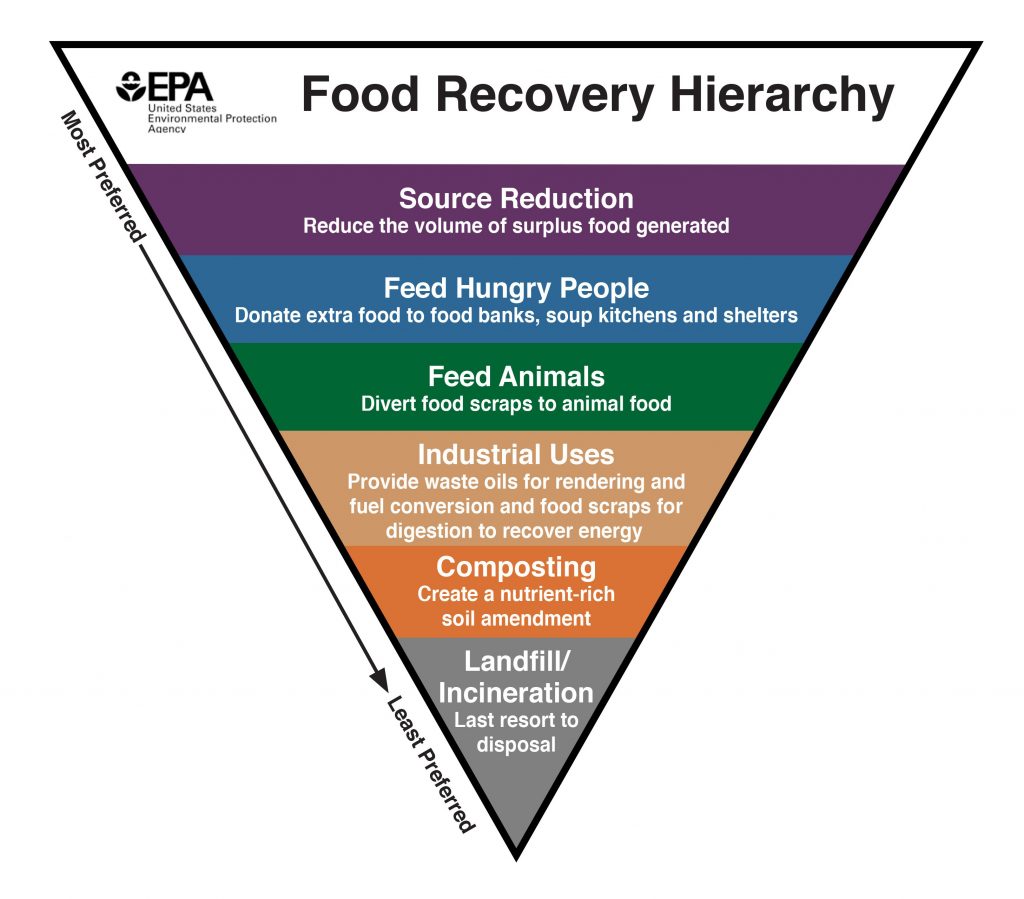By Eco Ambassador Anna Arriaga
Food waste is no joke. While it may not seem like the most thrilling topic to discuss, it’s an issue that every single one of us contributes to, whether we intend to or not. Having a “zero waste lifestyle,” a way of living where an individual aims to produce zero trash or waste at all, is often not realistic or accessible for the average college student or working person. Although we may not be able to produce absolutely no waste, there are many ways we can collectively reduce our waste.
What are the stats?
First, it’s imperative to understand the magnitude of the global and national food waste issue. Here are some quick and impactful facts from earth.org:
- Roughly one third of the food produced intended for human consumption is wasted or lost every year.
- Food loss and waste accounts for 4.4 gigatons of greenhouse gas emissions annually.
- If 25% of the food currently being lost or wasted globally was saved, it would be enough to feed 870 million people around the world.
- The water used to produce the food wasted could be used by 9 billion people at around 200 liters per person per day.
Why is it important?
According to the FDA, wasted food is the single largest category of material placed in municipal landfills. A 2021 USDA study found that more than 34 million people, including 9 million children, are food insecure. This lost food could not only go towards feeding hungry people in the United States. The resources and energy used to produce wasted food could also have been used elsewhere.
How can I help?
It seems nearly impossible to eat, cook, or buy a meal without producing some amount of waste nowadays. However, whether you’re an off or on campus student, there are very realistic changes you can make in your daily activities to create less food waste. Think of these tips next time you’re eating either in or out:
- When you’re at the dining hall, only serve yourself what you need. If you want more, you can always go back for seconds.
- When buying produce, store your goods in the freezer to make sure they don’t rot before you can eat them.
- Store leftover veggies and other food products to make broth and soup.
- Buy ugly produce and foods. Oftentimes, the ugly or bruised produce (which is perfectly safe to eat) will get thrown out at grocery stores due to their lack of aesthetic appeal.
- Shop smart and plan your meals out. Take stock of your fridge contents before going shopping to ensure you’re only buying what you need.
- See through expiration dates. Expiration labels are not regulated by the government and are completely up to the company producing the food product. Many food products past their “Sell by” and “Best by” dates often indicate the food is simply not at its highest quality but is still edible and safe to consume.
- Sometimes, we do have to throw away some scraps. Look into purchasing a compost bin and/or a local composting service. If you live in Cambridge, you can participate in composting free of charge. If you live on campus, use our compost bins all around campus.

